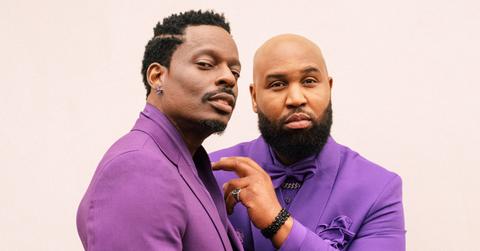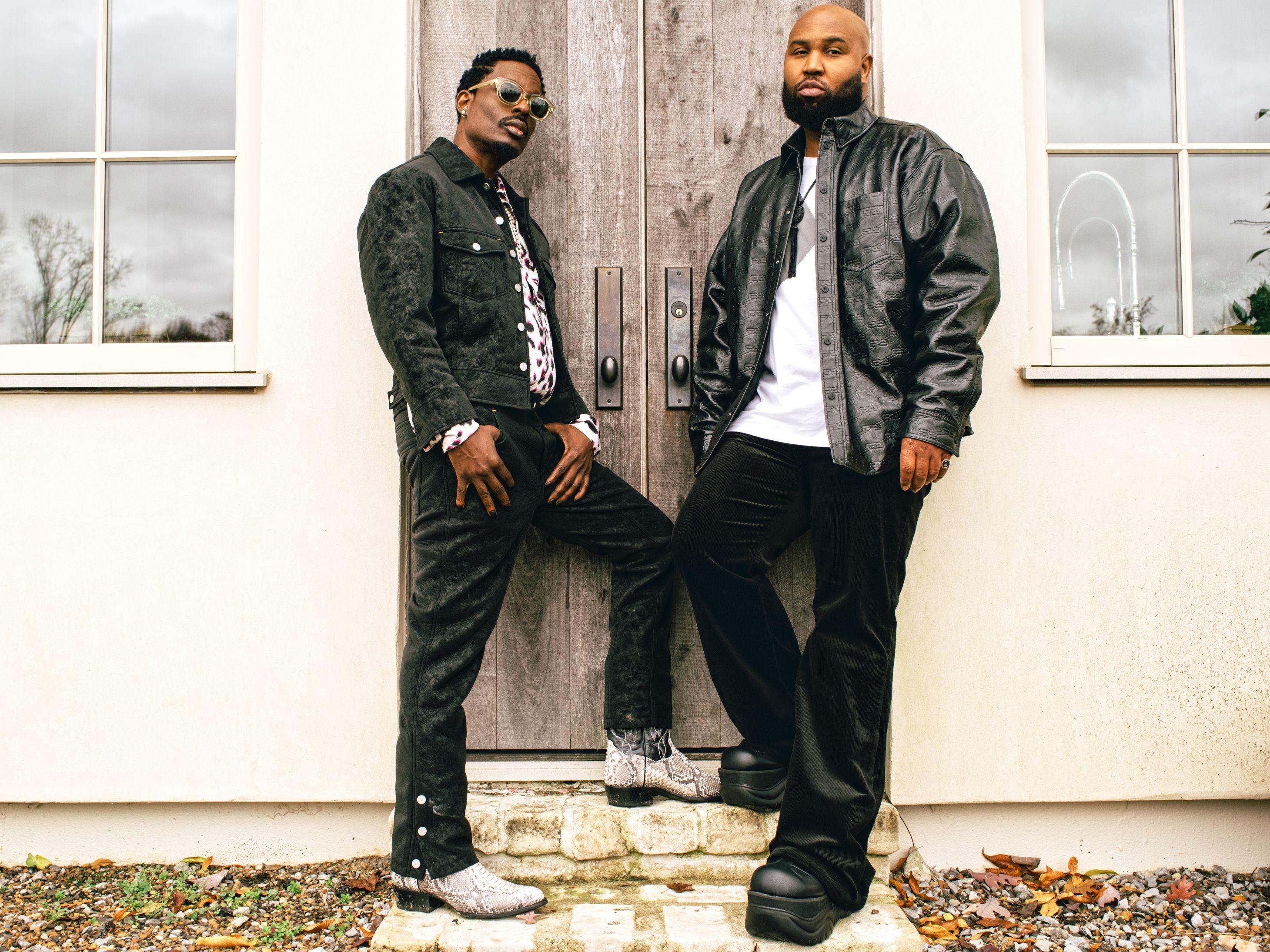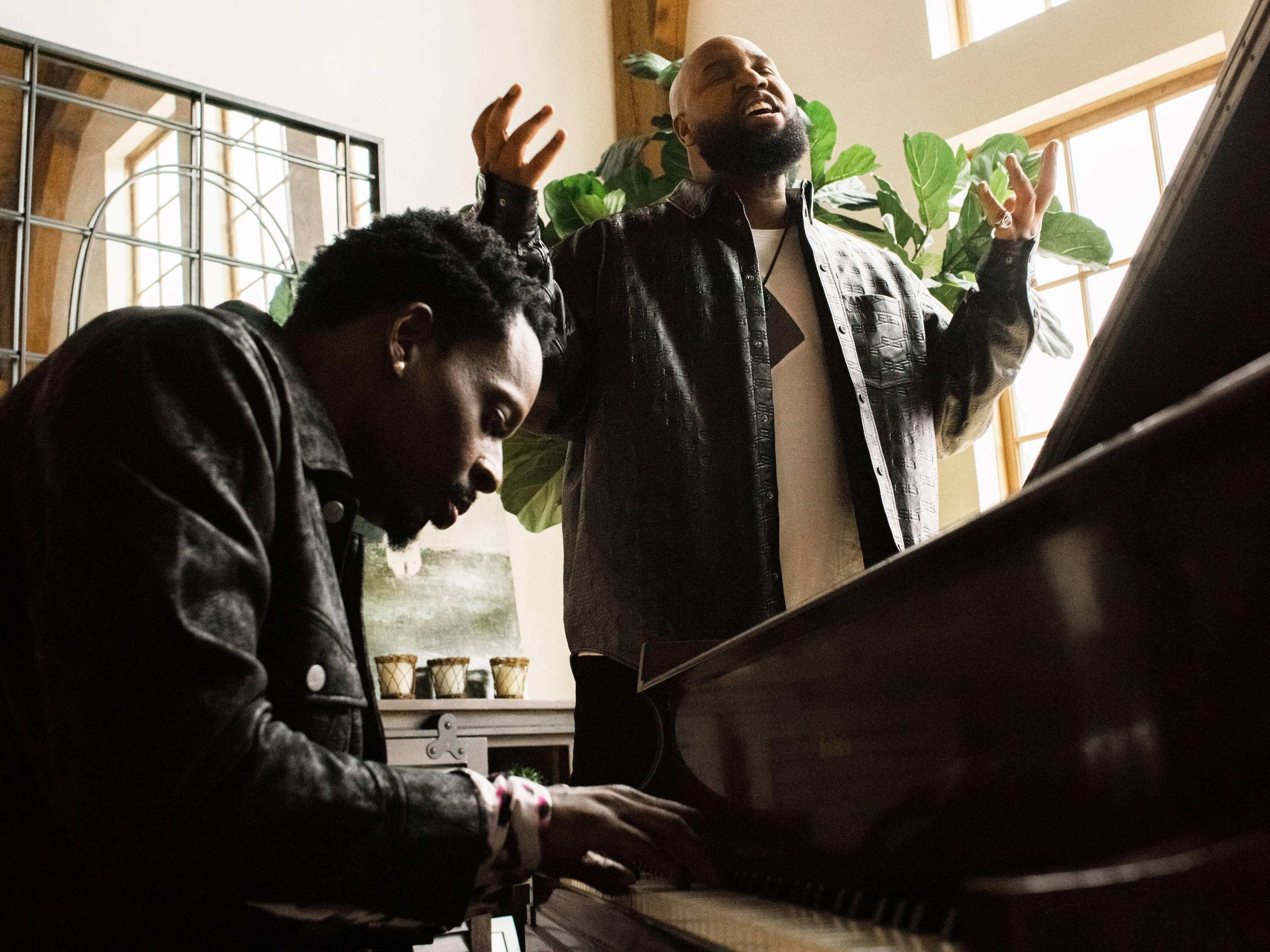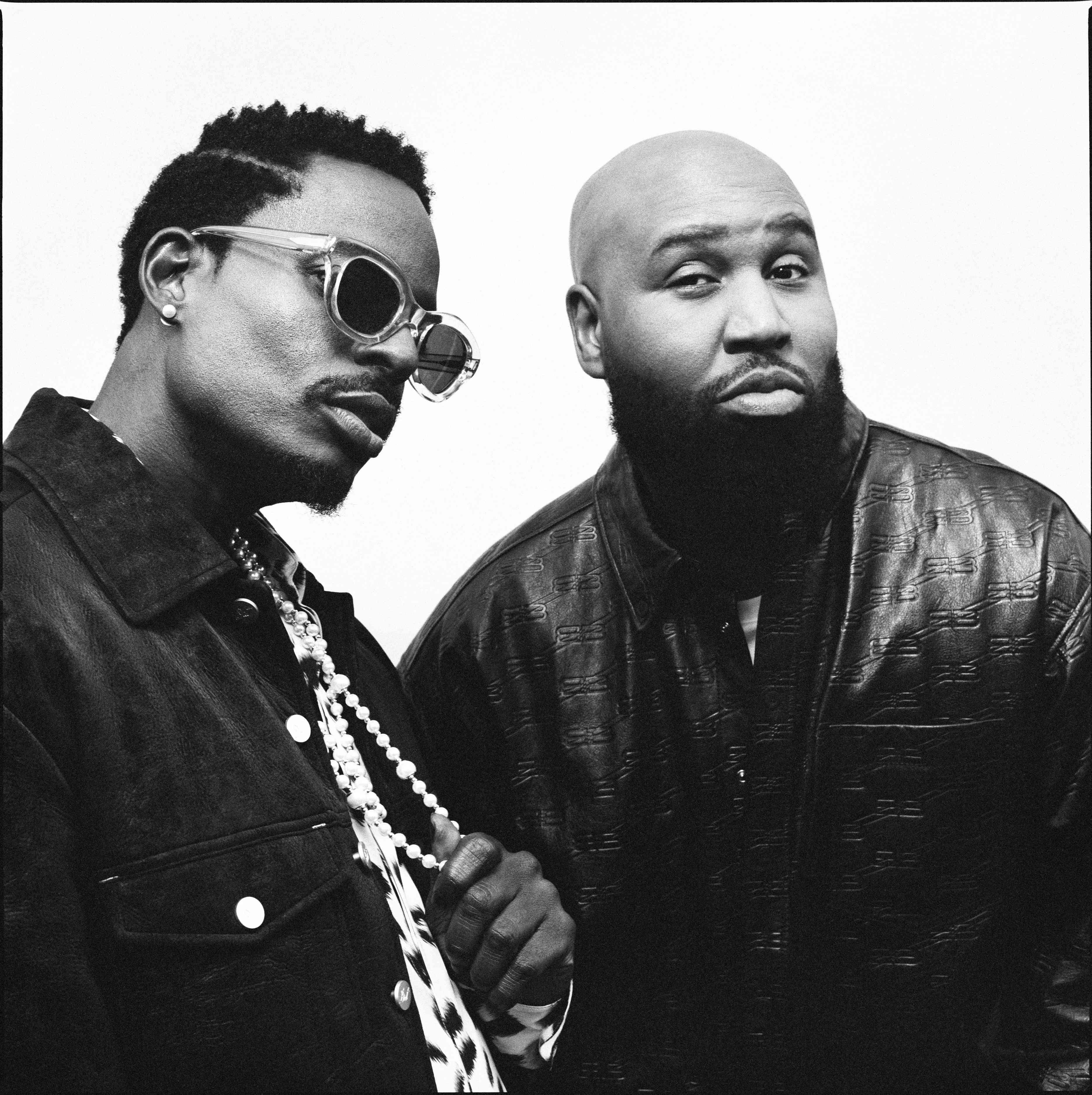
Grammy-Award Winning Group Louis York Talks Early Influences and New Album: Songs With Friends
Louis York, the powerhouse duo of Chuck Harmony and Claude Kelly, has an impressive background in the music industry.
By Kirby WrightOct. 25 2024, Published 1:22 p.m. ET

They have written and produced hits for artists such as Rihanna, Mary J. Blige, Bruno Mars, Whitney Houston, Celine Dion, Fantasia, Jazmine Sullivan, Ne-Yo, and many more. Their work has garnered numerous accolades, including Grammy Awards, establishing them as true innovators in contemporary music.
And after a few minutes of conversation and connecting over our love for peaceful moments, good books, and a few TV shows—I knew I was in good company. Their passion was clear from the start of the call. The pair’s voice lights up when talking about their live shows and the power of community. And to be honest, it felt good to know that a group that has garnered so much success has such a reverence for their craft. Check out our conversation below, give the album a listen, and if you feel compelled, check out their tour dates and find out why the pair calls their shows “music’s best-kept secret.”
BLEU: So, I like to start at the beginning. Can you both tell me individually when you knew that music was something that made you feel at peace?
Claude: For me, it was at church. As far back as I could remember, I was so obsessed with instruments. I remember a drummer, his name was Tom Taylor, he would have to sit me on his lap and play music to keep me from crying. And I was so young then. I was just always fascinated with music. So yeah—I’d equate it to church.
Chuck: It was church early for me, too. But I was also listening to music at home. My mother played a lot of records cleaning the house, doing chores, after school, or whatever. I wasn't really allowed to watch a lot of television, so it was a bunch of record playing. It was a lot of early Bob Marley, the Beatles, Motown, and all that stuff. I heard the magic immediately. It was like, whatever that is, I want to be a part of it. And I don't remember this, but she said I was, like, singing before I could really speak and conceptualize it.
BLEU: That's beautiful. Music can definitely set the tone for the day. Now, talk to me about how you two connected. Was it when you were with Chrisette Michelle? How did you know there was chemistry and that you two could build together?
Claude: Yes, that’s correct—in 2006, and we knew instantly. I'm not sure if it's a little different now because of technology, but earlier musicians would get paired up with people you didn't know a lot. In the early 2000s, labels flew you out and said, “Hey, I have a good feeling about you doing this song with this person,” and you’d just kind of go with the flow. It's like speed dating because sometimes you only have a day with the artists to connect, write a record, record it, and, hopefully, make it something big. So that was the situation with me and Chuck. I flew to Atlanta, where his studio was, and we kind of walked in there blindly. And the funny thing is to know us now, we know we either were gonna get along or hate each other because we’re so in our own worlds. Immediately, we bonded over the music for her but also music in the world. When you know, you know. We clicked from our first session.
BLEU: You mentioned songwriting. Looking back at your careers as songwriters and producers, how has that influenced your path and this new album?
Chuck: Well, for me, I’ve gotten to meet a lot of different kinds of people. Even though a lot of my well-known songs are R&B, I’ve sat with Seal, Michael Bolton, Bono, and all of those kinds of people. You can’t help but be influenced by greatness if you’re going to be great, right? And so, with this album, when I listen back to Songs with Friends, I hear all those conversations—them playing me music or wanting a song like this or that. It leads to creating something I’ve never heard before. That’s how I do music.
I think that’s where the eclectic spirit of Songs with Friends comes out. It’s not just one sound, and we’re not doing 12 songs that all sound the same. We’re painting pictures with a lot of different colors. That’s where I feel like I really shine on Songs with Friends.
Claude: I’d say I’ve had a very colorful songwriting career, working with all kinds of artists. But what makes Songs with Friends special—I'm glad you asked—is that it’s a duets album. There’s this perception that, okay, we know some people and just threw a few famous friends on the album. But when you listen to it, you realize it’s not just a dope song with a dope artist on it. We were actually songwriting for the person on that song.
We had conversations with Tamia about how much she loves love songs like that. We’ve sat around the piano singing the theme song to Family Ties with her and talked about how she and Donny [Hathaway] love those classic duets and even how much she loves country music. So it’s not just a song we had lying around; we incorporated the artist and wrote for them as well as for ourselves.
It’s the same thing with Anthony [Hamilton]. We co-wrote that song with him—he was as much a part of that process as we were. The skills we developed along the way, working with the greats, allowed us to create something unique. It’s not just like, “Hey, you’re my friend. Do me a favor and hop on my album.” No, we sat with each other for a few days, shot some content, and actually talked about where we all are in life. We wrote songs that feel true to them and to us. And it takes real experience to do that.

BLEU: Is that always a good feeling? I feel like sometimes when you know you're going through different things and incorporate it into your art the feelings can be complex. Talk to me about what it’s like to get your thoughts out in this way.
Claude: You don’t always feel good, I’ll tell you that much, because a lot of it is like therapy. It’s hard—conversations about life and your personal experiences. It’s like digging into emotions that don’t feel comfortable, right? Sometimes the best songs come out when real tough shit is happening.
And it’s not just about dealing with those emotions. There’s also a point in the songwriting and production process where you’re just trying to figure out how to put the puzzle together correctly. You get frustrated and start thinking, “Am I even good at music? What am I doing with my life?” You question everything. But if you trust it and push through, you get to the end, and it’s beautiful—hopefully, right?
That part isn't easy at all. But, like any kind of therapy, if you can push through and get to the end, the reward—the lollipop at the end, so to speak—makes it all worth it. And then, for us, with these songs, you have this thing that lives on forever, reminding you of how beautiful the journey was.
BLEU: That’s beautiful. That’s one of the things I love about music—you get it out, and it’s there forever. You can always come back and reflect on it. Can you describe the dynamic between you two in the studio? How do you navigate creative challenges, and how do you work through disagreements to continue thriving professionally?
Chuck: Oh, well, I always say that I come to the studio with Claude with a high level of respect for who he is outside of what we’re doing together. He’s just that guy. And I bring that level of respect to the table every time. It never changes—whether it’s our earlier projects like Fragile or if we’re doing a song today, it’s the same respect. That sets the table for us both to be comfortable sharing ideas. A lot of times, we share ideas through conversation more than through music itself.
Most people think it’s just, “I do all the music, and Claude writes all the lyrics,” but it’s really interchangeable. Sometimes Claude comes up with a chord progression, and sometimes I might come up with a great lyric for a hook or something. So, it’s really a back-and-forth. That’s what keeps us strong and what helps us avoid creative difficulties. One of us will come up with an idea that sparks something, and we develop it from there.

BLEU: I’ll close with this: what’s the overall feeling you’d like people to get from the album?
Claude: That’s a good question. You know, on an artist level, what you’ll hear when you listen from top to bottom—yeah, of course, people will recognize the names of the guest artists very well. But what really ties the whole thing together is us, Louis York—vocally, musically, production-wise, creatively. You’ll see, like, “Yo, these guys are formidable.” This is not a fluke. We do this.
It’s like, when we’re live on stage, it’s a whole experience. We’re going to tour with Jessie J, who’s one of the baddest to do it. We’ve been on tour with Anthony Hamilton, and it’s been a straight-up, equal exchange of energy, singing, playing, and just bringing it every night. So, I think people will have a lot more respect for us as musicians when they see us on stage, performing it all together.
On a message level, whether we say it or not, we make light music. We make music that inspires people, that encourages them to keep striving, keep trying, and keep betting on themselves. It’s music that pushes people to do some self-exploration. And I think this album is the best we’ve done at that. I love all our projects, but we’ve gotten better and better with each one, which is really cool to say.
The messaging, the lyrics, the feeling, the production—it’s as much commercial as it is spiritual.
Chuck: Also, we want people to see the community in not just the music, but in Louis York. It’s about finding our tribe, finding our people, and interacting on a lot of different levels—not just on a music level but also a book level. We have tiny book clubs, you know?
A lot of times, when people experience us in person, it’s really a love fest—they feel like they’re in church. We want this album to be the marketing for that kind of feeling. That sense of community between us and the guest artists, us and the musicians. There are a lot of great musicians on the album. I didn’t play everything myself like I usually do. I invited other people to play, so it’s also a community-based project. We want people to feel that—songs and love.

